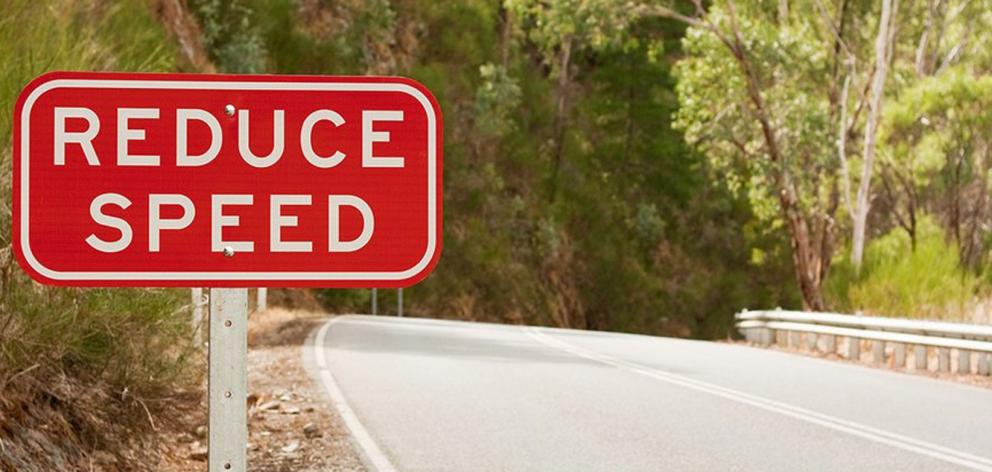
With respect to recent articles on speed limits, I have noted comments being made on the impacts of speed limit reduction that are not based on science or fact.
Speed management is a fundamental component of the "safe system" approach to road safety. Speed determines both the likelihood of a crash occurring and the severity of outcome. As speeds increase, so does the likelihood that any crash outcome will become more severe. It is globally recognised that even small reductions in mean vehicle travel speeds result in large reductions in trauma.
There are numerous peer-reviewed studies that have measured real-world impacts of speed reduction. These studies tell a consistent story. As speeds reduce, so does road trauma. This basic "rule of thumb" applies when calculating casualty reduction.
A 5% decrease in average speed leads to about a 10% decrease in all injury crashes and a 20% decrease in fatal crashes.
In a non-divided rural road environment, where vehicles are capable of involvement in head-on collisions, speed limits of no more than 70kmh to 80kmh should be in place to ensure crashes are survivable.
To further illustrate the impact of rural speed limit reduction, when the speed limit was reduced in Sweden from 90kmh to 80kmh on a large portion (21%) of the state road network (mainly undivided rural roads), the mean speed was found to have reduced by more than 3kmh and the number of fatalities was reduced by about 40%.
In a bigger sample size, in France, where speed limits on similarly undivided rural roads were reduced in 2018 from 90kmh to 80kmh, fatalities were reduced by 12% on the relevant part of the network, with an overall reduction of 331 deaths on an annual basis compared with the previous four years.
The European Traffic Safety Council (ETSC) reported in 2019 that
"countries with a significantly lower road mortality rate than the European Union average of five deaths per 100,000 population apply a 70kmh or 80kmh standard speed limit on rural, non-motorway roads".
It is important to recognise that New Zealand’s current road safety performance, as measured by road deaths per 100,000 population, is significantly worse than that of the world’s best-performing countries. As examples, the World Health Organisation reported in the 2018 Global Status Report on Road Safety that while Sweden and Switzerland had road crash death rates per 100,000 population of just 2.8 and 2.7 respectively, New Zealand’s rate was 7.8. This rate is almost 300% higher than the best-performing countries.
The science is very clear — reducing the speed limits on rural non-divided rural roads in New Zealand will prevent an enormous number of road deaths and serious injuries.
It is a global problem that there is a lack of understanding by members of the public about the link between mean travel speeds and trauma rates. Higher speeds are perceived to be safe because at an individual level, serious crashes are rare events. However, the science is clear that small decreases in speed, when multiplied across a population, generate large decreases in road trauma.
It is a common international phenomenon that commentators will want to attribute road trauma rates solely to behaviours such as driver distraction, driver inexperience or driver education. While these issues are important, they avoid a fundamental truth. Regardless of the reason a crash occurs, impact speed always decides injury severity and lowering speed limits and rigorously enforcing them has globally proven to be a highly effective casualty reducing strategy.
Further, there are major consequential benefits to rural speed reduction as lower speeds will also generate fuel savings and reduce CO2 emissions, which will assist New Zealand’s contribution to global sustainability targets.
Claims that small increases in travel time are more important than saving lives and preventing serious injuries contradicts all contemporary understanding of how the "Safe System" approach to road safety should operate. The fundamental principle is that no-one using the road system should be killed or seriously injured and trading lives in the interests of saving a few minutes in travel time is not an ethically justifiable position.
How could anyone seriously justify their desire to save a few minutes in travel time is worth the life of a daughter or a son?
The Ministry of Transport calculated that road crashes cost New Zealand $4.6billion in 2019. The costs are staggering and reducing rural non-divided road speed limits is essential to reducing road deaths and serious injuries.
When speeds reduce, everyone wins.
- Dave Cliff is a former police inspector based in Dunedin, the former district commander of the Canterbury police district and assistant police commissioner for road policing, who travelled Otago and Southland roads extensively. He now leads the Global Road Safety Partnership which is based in Geneva, Switzerland.












